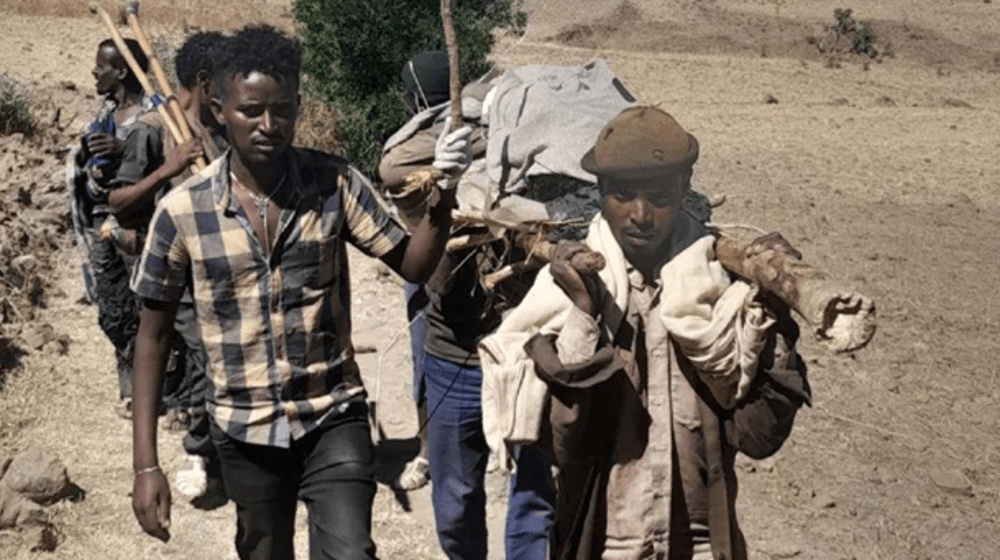When he began serving as a midwife five years ago, Melkam Desse was only 21 years old. Born and raised in Debre Tabor town, Amhara Region of Ethiopia, he studied midwifery at Debre Tabor Health College.
He began working at Seqota Health Center and then at Seqota Hospital. He was then transferred to the Serko Health Center located in Mekit Wereda, north Wollo zone of Amhara region, where he served pregnant women during the recent conflict in northern Ethiopia.
UNFPA worked with its strategic partner, the Ethiopian Midwives Association (EMwA), over the past two years to deploy midwives to respond to the humanitarian crises in six affected regions in Ethiopia, including the Amhara Region, targeting the needs of internally displaced persons and host communities. The “Sexual and Reproductive Health in Humanitarian Settings Project” UNFPA supported through EMwA availed comprehensive SRH and GBV response services in nearly 289 health facilities, deploying more than 500 humanitarian personnel, out of which more than 450 were midwives.
Compared to other health centers damaged by the conflict, Serko Health Center where Melka worked in was not that much affected though some of its supplies were looted. Because of his passion for the midwifery profession, dedication and youth, the mothers in Mekit consider Melkam as their son.
Emebet Mamo, a mother of five children, is one such woman in the Mekit woreda. During the conflict she was between life and death when they brought her to the Serko Health Center.
“She was in a very bad condition when she arrived,” remembers Melkam. “We used what we have at our disposal to save the child, but we didn’t succeed,” he says sadly.
“But we were happy because the mother was alive. Then, I realized that she needed to get to the Mekit Hospital, located some 8 hours walking distance or she would die. I then asked the four people who carried her to our health center on a stretcher walking for 5 hours if they could walk with me to take her to the hospital. Supporting her with glucose we began our journey amid the conflict,” he recalls.
“After we travelled for a few hours, one of the men carrying her who was also a priest said: ‘this woman is dead. Let me do the necessary function and bury her here so that we return.’ But I insisted that she would recover if we managed to get her to the hospital,” Melkam remembers the situation looking at the pictures he had taken on the road using his phone.
“Thank God, finally we reached the hospital where she got the required surgery and medicine. Today she considers me like her son,” Melkam says.


